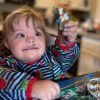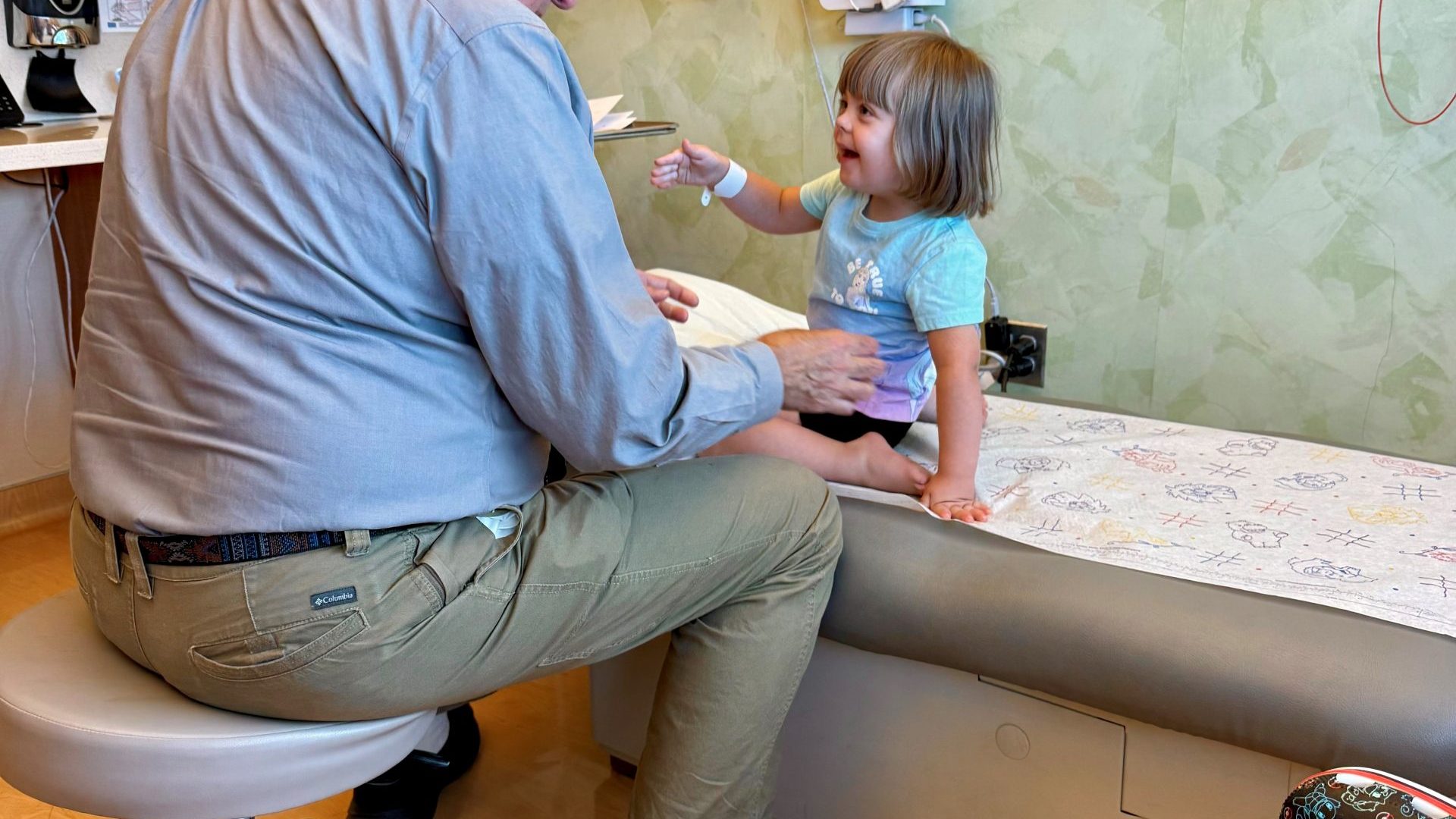Kay and I recently had an incredibly informative visit with a new genetics specialist—and it felt like a full-circle moment.
As many of you know, Kay doesn’t have the most common form of Down syndrome (Trisomy 21). Instead, she has Translocation Down syndrome, which occurs when an extra copy of chromosome 21 attaches to another chromosome. This type only makes up about 3–4% of Down syndrome cases and can play out a bit differently genetically.
Although I had a prenatal diagnosis, additional bloodwork after Kay was born confirmed that she had the translocation type. A few months later, our previous geneticist recommended testing both me and Kay’s dad to determine if either of us was a carrier of the translocation. In many cases, translocation is inherited from a parent with a balanced translocation—someone who doesn’t have any health issues themselves but can pass on an unbalanced form to their child. That said, in about one-third of cases, neither parent is a carrier, and the translocation occurs spontaneously.
When our results came back, we learned that I carry the balanced translocation that Kay inherited.
Sadly, we only had two visits with that geneticist before she shifted to private-pay only, which we couldn’t afford. Not long after that, she left Las Vegas—and for years, there was no local genetics specialist available.
Fast forward almost five years, and we finally have access to a genetics expert again! Our recent appointment was such a positive experience. The doctor was warm, knowledgeable, and patient with my long list of questions.
One of my biggest concerns has always been the “unknowns” when it comes to long-term health risks for both Kay and myself. He reassured me that Kay’s Type 1 Diabetes is most likely due to family history, not her translocation. From his assessment, Kay is thriving—happy, healthy, and doing great developmentally. Of course, no one can predict the future, but he doesn’t see any immediate genetic red flags that would point to future complications.
When we shifted the conversation to my own genetics, he explained that while I’m not at risk for any specific health conditions just based on my genetic makeup, future pregnancies could carry some unknowns. Because I have a balanced translocation, there’s a higher chance of passing on chromosomal differences to a future child. This could mean:
Another child with Down syndrome (which I would lovingly embrace),
A child with the same balanced translocation and no complications (but who may face similar reproductive considerations later in life),
A risk—though small—of having a child with Trisomy 13, a serious condition where babies often don’t survive past the first month,
Or a child with no chromosomal differences at all.
It’s a wide range of possibilities, and if the time comes to grow our family, we’ll take it one step at a time with guidance and support.
For now, we’re continuing forward just as we always do—one day at a time. Kay is scheduled to follow up with the geneticist again in two years unless something comes up sooner. I’m so thankful for the information, reassurance, and the path ahead.



